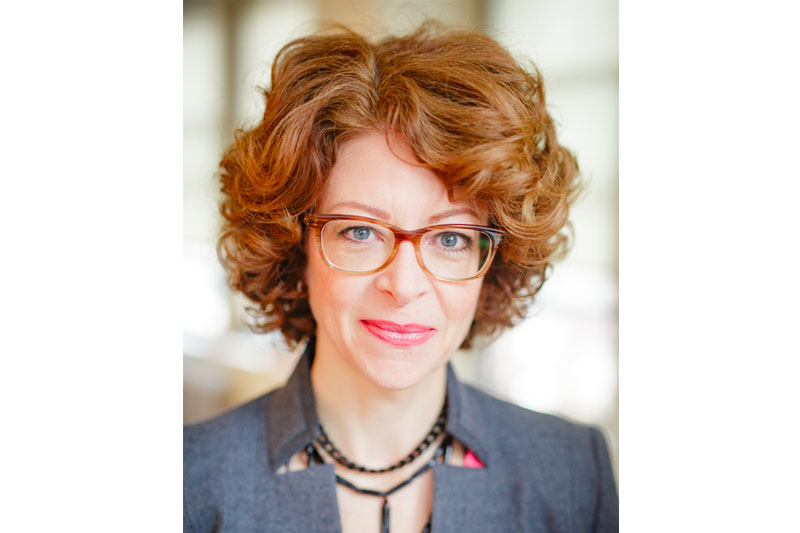Meet the NYCHG Members: Kate Edwards of Kate Edwards & Company
Learn more about our member Kate Edwards
Home » Meet the NYCHG Members: Kate Edwards of Kate Edwards & Company

Meet the NYCHG Members: Kate Edwards of Kate Edwards & Company
Like many of her contemporaries, Kate Edwards got her start in the hospitality industry by chance, after a stint at an ice cream shop as a teen snowballed into a full-fledged career in restaurants. She spent 7 years at Manhattan hot spot Balthazar and later worked at Per Se, among other dining destinations. In 2007, she founded Kate Edwards & Company, a firm that provides coaching, training, and creative solutions for small to medium-sized multi-unit hospitality brands. Edwards is a certified executive coach whose clients have included Brooklyn Fare, Jack’s Wife Freda, and Westville.
Q: I’m sure you get asked this a lot, but what is your favorite restaurant in New York City?
Kate Edwards: It’s especially hard now because some of my favorites have closed, but my all-time favorite restaurant will always be Balthazar. I opened that restaurant and worked there for seven years. Oftentimes, when you work at a restaurant and you leave, you say goodbye, but I will always love that place.
Q: How did you get your start in the industry?
KE: The old-fashioned way! I needed a job in college and I thought, well, this may work. I was spending my summer in Cape Cod and I got a job at an ice cream joint. I was a short-order cook for a time, but then I realized I should not be cooking, so then I proceeded to look for jobs where I thought it seemed more fun, which, for me, was the front-of-the-house.
Q: Did you immediately know that this was your calling?
KE: Not exactly. I had studied theater in college, and upon arriving in New York, I wanted to do something creative. Music was a passion of mine and I was a working musician as well as a waitress or a restaurant manager. I loved working in restaurants, but I was also excelling at music. After seven years, at Balthazar, I kind of hit a wall and thought I needed to figure out what my career was going to be.
I basically did a list of pros and cons for each occupation — restaurants and music — and the one that came out the winner was restaurants. Why? Because I was good at it. I liked it. It was invigorating. I made great money. Music was satisfying, but I didn’t really make money with it. So then I ended up leaving Balthazar and I got a job at Per Se and that put me on my path.
Q: Was there a culture shock going from a brasserie environment like Balthazar to a super-fine dining place like Per Se?
KE: It’s hard to leave any job after seven years. It was definitely apples and oranges going from a downtown place where I knew everybody’s first names up to Per Se, this fine-dining temple. It was a very different scene, but it was a huge education. I say it was like my Ph.D. in service because we dug deep into service, and I love to geek out on all those really beautiful little details of service. It was wonderful.
Q: What was the impetus for founding Kate Edwards & Company?
KE: I later worked at a restaurant that was struggling and, in the course of that, I dealt with a lot of consultants. They were helping put out fires, which is something that I was doing as well, and I thought if I can make a difference, why not try to make a difference? I had seen people doing consulting well and not doing it well, and I thought I can do this on the better side.
Q: You wrote a book — Hello! And Every Little Thing That Matters — that focuses on service, but the services you offer have evolved over time, correct?
KE: When I started my company, it was really focused on the service experience. That’s where I made my name and it’s something that I still do but not as much these days. I’ve shifted to the leadership and training side of the business while also doing executive coaching.
Q: When you’re coming into an operation as a coach, what is your approach?
KE: I was certified as an executive coach in 2013, and the beauty of learning that technique is that you’re simply asking questions. It allows you to understand where people are pretty quickly. I ask a combination of open questions and then more specific questions.
I might start with, why did you think to call me? What’s going on in your world? And then more specific questions like, how did you get into this dilemma? And it can lead to, when did you notice your managers were not performing in the way you want them to? It’s basically a diagnosis.
Q: Would it be accurate to say they’re calling for a symptom then, but there’s actually often a larger problem at hand?
KE: Yes, a lot of times restaurants need a culture reboot, but when operators call me that isn’t what they are calling about. They may say, my team seems a little lackadaisical or we want to do a major training. And then I’ll ask questions about their core values. And they may say, well, we had that when we had one restaurant, but now we’ve got four, and it’s really hard to focus on values. So I work with them to identify their culture and then we can train the culture and that’s when people are like, okay, I get it now!
In order to build the culture and values, I interview a lot of people involved within the business and they get so excited to be part of the process and to be included in identifying the culture. They call out not only what works but what could be improved. We then clarify where we can make things better, and it tends to unify teams in a really beautiful way.
If a business is struggling, doing a culture reboot sends a statement from ownership to staffers of “We think it’s worth it, we realize we could have done things better, and now we’re going to do that to make a new start.” And that is invigorating for the team because they start to feel like, wow, you actually do care!
In any situation, for the process to be effective, the operation has to follow through. My work can’t be external. My work has to become internal so that after we’ve identified the culture, it must be integrated into every employee interaction, from your hiring and on-boarding processes to your employee review system. It has to be integrated everywhere.
Q: Are you called in to help coach people for advancement within a company?
KE: Preparing people for the next step is something that definitely comes up. Sometimes it will be within a group training where we focus on aspects of leadership for the entire management team where I focus on various topics, from giving feedback, discipline, termination, time management, or micromanagement. Doing it as a group is very powerful because it’s very interactive. I ask people to bring up real-life experiences, which shows the group how their peers have handled things in the past and how they can do better. And it creates accountability when people do these trainings together.
We also do individual coaching that is often correlated with a review. So maybe someone’s review said, you’re great, you’re awesome, but you need to work on your communication skills. But no one is telling them how to do that or what it really means. They’re not getting directives on how to improve. So with individual coaching, we discover where the barriers are, where some of the habits are, and we’ll unpack the truth of the review so it’s not a mystery. Oftentimes, people will say, yes, I could be better at this, but I don’t know how to go about it. Coaching and training help them discover that. How can you improve? How can you gain some confidence? We help get them there.
Q: Do you think as dining has become part of our popular culture that customer expectations around service have been elevated?
KE: People just have higher expectations in general because service is something that is all around us at various levels. I think it’s a wonderful opportunity for restaurants to differentiate, to create delight, and make connections. At the heart of it, I believe restaurants are there to make someone feel a little better than when they walked in. And that could be anything from the shape of a beautiful spoon on a table or a special drink, to a smile or remembering what their usual order is. There are so many ways you can do it, but the goal is to make the diner feel better.
So no matter what the restaurant is — Balthazar or Per Se — it’s all the same thing; it’s just presented and packaged differently. Hospitality is “I want you to feel good,” and through it, you will feel very satisfied. If you feel good, I feel good. Mission accomplished.
To learn more about Kate Edwards & Company and how their coaching services can help your leadership team grow, visit https://kateedwardscompany.com/.
Back to Blog PostsAbout NYCHG
Established in 2009, The New York City Hospitality Group ("NYCHG") is a New York City-centric organization dedicated to serving the restaurant and hospitality industry. NYCHG is comprised of the best in class professionals that act as a resource to each other and the hospitality community.
Subscribe
2019 nychg.org | Apply for Membership
